The Right’s Boon in Knox v. SEIU
On the surface, the case of Knox v. Service Employees International Union (SEIU) lacks blockbuster appeal. But in the wake of the Supreme Court's Citizens United decision, it has the potential to further rig the playing field in favor of big business and the right wing.In the wake of the Supreme Court's Citizens United decision, this case has the potential to further rig the playing field in favor of big business and the right wing.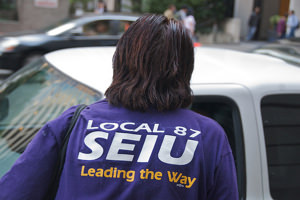
On the surface, the case of Knox v. Service Employees International Union (SEIU), now pending before the U.S. Supreme Court, lacks blockbuster appeal. Unlike other high-profile disputes on the court’s docket, such as those involving the constitutionality of President Obama’s health care legislation and Arizona’s immigration law, Knox has flown largely under the radar.
However, in the wake of the Supreme Court’s Citizens United decision in January 2010, which was predicated in part on the tenuous claim that labor unions would counter the political influence of corporations, the Knox case has the potential to further rig the playing field in favor of big business and the right wing.
The facts in Knox are simple enough. With more than 2 million members, SEIU is the fastest-growing union in North America and one of the most progressive. According to The New York Times, in the last quarter of 2011 alone, the union contributed $1 million to Priorities USA, a Democratic super PAC supporting Obama’s re-election, and hundreds of thousands more to super PACs established to help elect Democrats to the House and Senate.
Roughly half of SEIU members, like those who belong to the union’s Local 1000 in California, are employed by state and local governments. California law does not require state employees to join a union, but those who opt out are nonetheless assessed a “fair-share” fee (usually a percentage of ordinary membership dues) that is paid to the union to cover the costs of collective bargaining, which benefits all workers. The union, in turn, is precluded by federal law from using such fees for political advocacy without advance notice, affording non-members the opportunity to pay a reduced fee related only to bargaining. Although regular union dues are treated differently, even union members have the legal right to object to having their dues spent on political causes.
In June 2005, in compliance with federal law, Local 1000 sent mailers (known as “Hudson notices” after a Supreme Court case decided in 1986) to nonmembers containing detailed information on how their fair-share fees would be calculated and used. In August that year, the local sent out another mailing advising nonmembers and members alike that the union would levy a temporary assessment on both dues and fair-share fees to help defeat two initiatives promoted by then-Gov. Arnold Schwarzenegger and the state’s Republican leadership that had qualified for the California ballot — one aimed at capping overall state spending and another aimed at further restricting the use of union funds for political purposes.
The trouble was that the August mailing lacked the detail required for a valid Hudson notice. A group of nonunion state employees successfully sued the local in federal district court, claiming the use of their fair-share fees without a second Hudson notice violated their rights under the First, Fifth and 14th Amendments. The 9th Circuit Court of Appeals subsequently reversed the district court, but the nonunion members appealed to the Supreme Court, which agreed last year to hear their petition.
Judging from the oral arguments in Knox v. SEIU heard by the court this past January, the justices will reject the union’s request to dismiss the case and issue a ruling against the union. The only issue will be the scope of the labor movement’s defeat. At a minimum, the ruling will highlight a longstanding contradiction at the heart of campaign finance law that Citizens United has greatly exacerbated. On its face, Citizens United held for the first time that corporations, unions and trade associations possess a First Amendment right to make “independent” expenditures (those that are not directly “coordinated” with candidates) from their general treasuries directly on political campaigns. Two months after the Supreme Court handed down its Citizens United ruling, the D.C. Court of Appeals ruled in Speechnow.org v. FEC that such expenditures — typically made to what have come to be called super PACs and even more shadowy nonprofits — may be unlimited.
But as Harvard law professor Benjamin Sachs points out in a forthcoming article in the Columbia Law Review, the formal legal equality announced in Citizens United masks a fundamental inequality between unions and corporations when it comes to raising political action funds. While unions are prohibited by law from spending employees’ dues and fees on politics if the employees object, corporations are free to spend their assets on politics even if individual shareholders don’t want them to. The Supreme Court’s justification for the asymmetrical treatment is both cynical and longstanding, dating back to the 1970s. As most recently articulated by Justice Antonin Scalia in a labor law case decided in 2007 (Davenport v. Washington Education Association), the dues collected from union members are seen as compulsory and therefore coerced, thus warranting opt-out protections for dissenting workers like those involved in Knox. Shareholder investments, by contrast, are seen as purely voluntary. If an investor doesn’t like the way Exxon spends its money on politics, he or she can always switch their portfolios to Google.
The strategic importance of this distinction has not been lost on the National Right to Work Legal Defense Foundation, which represents the plaintiffs in Knox, or by the ultra-right Pacific Legal Foundation and the Cato Institute, which have filed amicus (friend of the court) briefs in support of the plaintiffs, or by right-wing activists and bloggers. As a recent column featured on Andrew Breitbart’s “Big Government” website reasoned, an expansive ruling in Knox “could deny the right of public sector unions to automatically deduct dues from paychecks under any circumstance.”
And that’s exactly the end game — the death of public unions and with them their political action war chests that are the lifeline of the Democratic Party and progressive causes everywhere. From Indiana to Arizona, the right is targeting public employees. Proposed legislation in some states, such as Wisconsin, would outlaw public-sector collective bargaining over wages. In others, including Arizona, there are proposals to prohibit government bodies from engaging in any kind of collective bargaining whatsoever with public employee unions.
The right also knows that if any legal challenges to the new laws find their way to the Roberts Supreme Court, they will reach a friendly forum that in 2009 upheld an Idaho law banning payroll deductions for union political activities (Ysursa v. Pocatello Education Assn.). Given the court’s well- established record of conservative judicial activism, it would be only a small legal hop, step and jump to a ruling upholding a ban on all payroll dues deductions.
So while the political left correctly turns its attention to how the Roberts court resolves Obamacare and other headline cases, it would do well to consider Knox, the little stealth case that threatens to play a big role reshaping our political landscape in favor of the corporate elite for generations to come.
Your support matters…Independent journalism is under threat and overshadowed by heavily funded mainstream media.
You can help level the playing field. Become a member.
Your tax-deductible contribution keeps us digging beneath the headlines to give you thought-provoking, investigative reporting and analysis that unearths what's really happening- without compromise.
Give today to support our courageous, independent journalists.

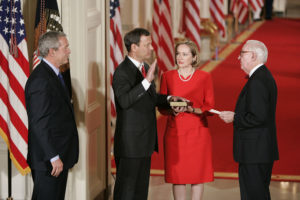

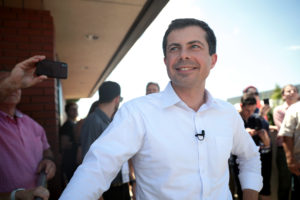
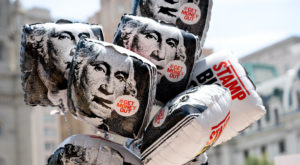
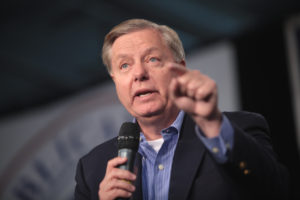
You need to be a supporter to comment.
There are currently no responses to this article.
Be the first to respond.